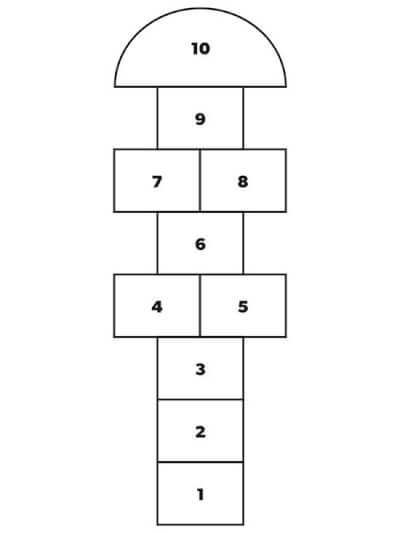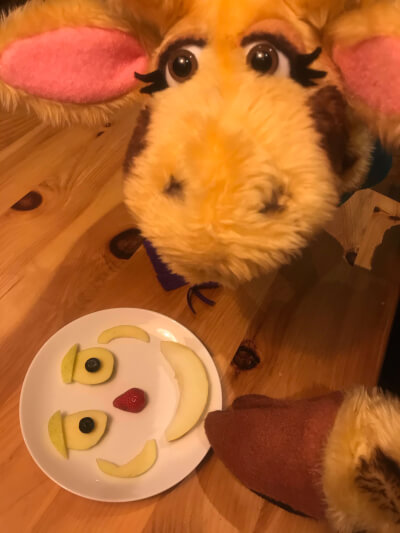Being my Best - 3 to 5 year-olds
What your child will be learning about…
- Developing a positive attitude to learning and building a growth mindset.
- Learning about practical steps they can take to help them bounce back when things go wrong.
- Keeping physically healthy - focus on healthy eating.
What you can talk about together…
- What sort of things can you do now that you couldn’t when you were a baby?
- Was it always easy to learn to do those things?
- What did you have to do in order to make it easier? (Keep practising, didn’t give up, learnt from mistakes, had help from other people etc.)
- What types of fruit and vegetables can you name?
- Which are your favourite ones?
- Why do we need to eat fruit and vegetables (their vitamins help us to keep healthy all over).
What you can do together…
Activity 1 - Yes I can!
Read or listen to the book The Dot by Peter Reynolds together - there are lots of version on YouTube. If your child has already heard the story (either at home or at school) they will most likely enjoy reading it again. It will be different with you at home, too.
Spend some time on the talking points (above) and after this give your child some pieces of paper with different dots/circles or lines on and encourage them to turn them into something else. For example, a line could become a stem of a flower, a circle could be wheel of a car.
Let your child know that there are no right or wrong ideas and if they’re not satisfied with their first attempt they can have another go.
If you have time, it would be great if you could also draw something, to show that you can try new things and that grown-ups can also keep experimenting and learning new things.
Activity 2 - Something new
Learn a new game together. If you have a board game that your child hasn’t played before try playing first without reading the instructions first. How did that go? What do we need to do first?
Ask your child how they feel after learning and playing it.
If you don’t have a board game that’s not been played before you could try a card game, or a game that doesn’t need any equipment, such as Simon Says. Or you could play a more physical game like hopscotch - see Harold’s Daily Diary entry for Wednesday 24th February, 2021 for how to play this. You can have a bit of fun reading Harold the giraffe’s diary at the same time!

For more information about Growth Mindset and how it can help your child, have a look at this article from the BBC's cbeebies website.
Activity 3 - Fruity faces
Talk about how fruit and vegetables help us to be healthy all over because of the different vitamins that they give us. Using fruit or salad available, make a Fruity Face using the ideas from Harold's Daily Diary Day 67 - Tuesday 14th of July. Encourage your child to find the correct date for an added challenge!
Activity 4 - Something new in the kitchen!
Combine a 'growth mindset' activity with some healthy eating ideas. Encourage your child to learn some new cooking skills, such as peeling vegetables. Here's a children's BBC film about making vegetable soup.
You can use any vegetables that you have - even tinned vegetables will help to make a healthy soup and encourage children to eat the recommended 5-a-day portions of fruit and veg.SCARF values I thought about...
Which of the SCARF values did the activities include?
You can point to these, or if you're making a SCARF journal you can write them down and tick those you did. There's no right or wrong answer! It's up to you to decide!
Safety
Caring
Achievement
Resilience
Friendship
About SCARF at Home activities
Information for parents and carers before you start using the SCARF at Home activities
Your child's school is sharing some activities with you to help keep children happy and healthy while they're at home. The activities support children's PSHE (Personal, Social, Health and Economic) education and have been provided by the UK's largest children's charity specialising in children's health and wellbeing, Coram Life Education and SCARF.
Coram Life Education and SCARF help schools to teach children valuable life skills needed to keep them happy, healthy and safe.


